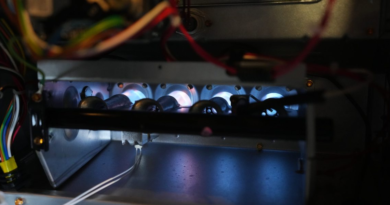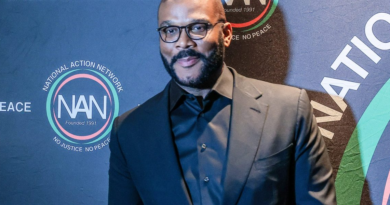Burnout is attacking our brains and making it harder to excel at work. ‘Deliberate calm’ can help us adapt
We’ve all learned to be resilient. The pandemic taught us that if nothing else. We’ve learned to get back up after a setback, to keep pressing forward, put in the time, do the work, and carry on. That’s no longer enough.
Think back to a couple of weeks before your last vacation. You were trying to wrap up a million projects at work before heading out while juggling shopping, travel plans, and perhaps even feeling sick. Your attention was divided as you bounced from task to task. You might have lost your temper, forgotten recent conversations, or slept poorly.
This happens regularly to many of us–throughout the year. A recent McKinsey Health Institute survey found that a quarter of workers are suffering from burnout symptoms. Nearly a third are experiencing distress. For many people, short-term memory is on overdrive. Without enough time to recover, nothing has time to be processed into long-term memory, which leads to feelings of being overwhelmed. In response, we move into a protective mindset instead of one that is open and ready to learn.
When the challenges we’re facing are familiar, this protective mindset may be fine. However, much of what we’re facing today–supply chain challenges, economic uncertainty, accelerated technological change–may be unfamiliar. We need to be able to think with an open mind, access the executive functioning part of our brain, innovate, and learn to succeed in high-stakes, unfamiliar situations.
According to scientific research, when our brain predicts that we will stay safe, it’s easy to be calm and ready to learn. However, if our brain predicts danger, we want to find refuge in what we already know has worked for us in the past. As stress rises, the prefrontal cortex, which is involved in executive functions such as planning, working memory, emotion processing, and cognitive flexibility, can become challenged. At the very moments when we most need to learn and adapt, we physically can’t.
The good news is there is a way to interrupt this cycle, make better decisions under stress, and lessen the experience of burnout: deliberate calm. “Deliberate” refers to the choice you have in how you experience and react to any given situation. “Calm” refers to staying focused and present under pressure, amidst volatility, without being swept away by your instinctive reactions. Deliberate calm improves your ability to rise to the occasion and act with intention and purpose during the most stressful, unfamiliar situations we can imagine.
If you learn to practice deliberate calm, you’ll first learn to achieve dual awareness–an understanding of what you’re thinking, feeling, and experiencing on the inside and what’s happening around you, on the outside. You’ll learn to read situations objectively to determine what’s most needed in each one and avoid falling into your reflexive traps.
Over time, through the regular practice of deliberate calm, you’ll build emotional self-regulation skills and learning agility even during periods of high stress.
This approach goes beyond the familiar (and important) idea of resilience (the ability to bounce back) and focuses on adaptability, which is more about taking a challenge and turning it into an opportunity to advance–bouncing forward. Higher levels of adaptability in the workplace are associated with better performance, confidence, and creative output. Indeed, adaptability may be the single most important predictor of individual performance and potential. Adaptability is also crucial for psychological and physical well-being and is linked to higher levels of overall life satisfaction and reduced burn-out. In our work with global companies, we have seen precisely these outcomes.
Even so, employers generally seem content to value adaptability rather than to develop it. Nine out of 10 of employers who responded to our survey agreed that adaptability is a top workplace skill–but only one out of 10 offers related capability building. Through deliberate calm, we can change adversity into action and accomplishment.
Jacqueline Brassey is a co-leader at the McKinsey Health Institute and a senior knowledge expert in the Luxembourg office. Aaron de Smet is a senior partner in McKinsey & Company’s New Jersey office. They are co-authors, with Michiel Kruyt, of Deliberate Calm: How to Learn and Lead in a Volatile World.
The opinions expressed in Fortune.com commentary pieces are solely the views of their authors and do not necessarily reflect the opinions and beliefs of Fortune.




